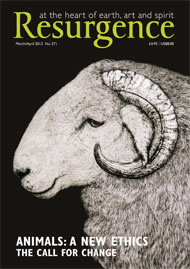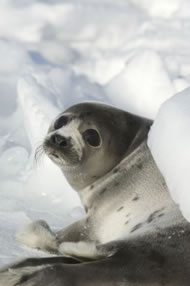As you read this, my colleagues in Canada are preparing to document one of the world’s largest annual slaughters of wildlife.
Many people mistakenly think Canada stopped hunting seal pups decades ago. Not only is it continuing, but the Canadian government is subsidising it – to the tune of an estimated £1.4 million in 2010.
Last year Sheryl Fink, the International Fund for Animal Welfare (IFAW)’s Seal Programme Director, witnessed the killing. She said: “We watched in horror as one of the men on the boat reached down and jabbed a live pup with his long handled gaff. The frightened pup whirled and snapped at the gaff, trying to bite at it in self defence. But she didn’t stand a chance. With another swing, the sealer slammed the steel hook into the little pup’s face, and lifted her up into the boat.”
With mass public support, IFAW has had real successes, particularly the European Union ban on seal-product importation. The number of seals killed in Canada’s commercial hunt has dropped dramatically, from over 354,000 in 2006 to about 37,000 in 2011 – but the quota for potential killing remains at 400,000.
Canada and Norway are challenging the EU ban at the World Trade Organization. The outcome is likely to be an important milestone in trade policy, and an indicator of the role of moral concerns – such as animal welfare – in relation to economic gain.
The Canadian public are understandably opposed to having their hard-earned taxes subsidise the hunt. A number of MPs have openly questioned the need for the commercial seal hunt, and now the Canadian parliament has its first MP from the Green Party, which opposes this annual slaughter too.








